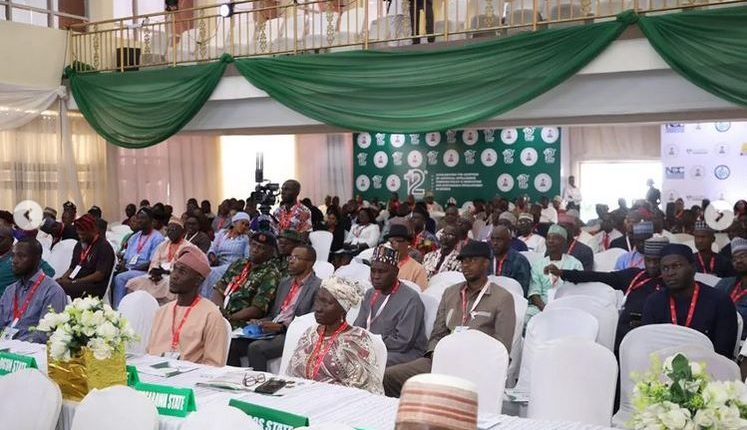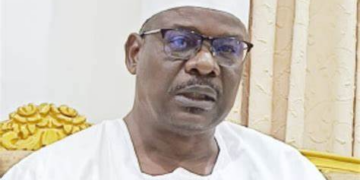Benue State Governor Hyacinth Alia has declared open the 12th National Council On Communications and Digital Economy (NCCIDE) held in Makurdi, the Benue State capital, with a charge on all states to embrace the digital economy in order not to be left behind.
Declaring the occasion open, the governor, who was represented by the deputy governor, Sam Ode, commended the minister, Dr Bosun Tijani, for ensuring that Benue State was granted the hosting right against all odds.
According to the governor, “the way things are going any country or State that does not embrace the digital economy will be left behind, for us in Benue, we are one among States that have embraced the digital economy, that is why our government has created the Benue Digital Infrastructure Company.”
In his address the minister of Communications, Innovation and Digital Economy, Dr. Bosun Tijani informed that in line with the National Digital Economy Policy and Strategy (NDEPS) 2020-2030, it has a dedicated National Centre for Artificial Intelligence and Robotics (NCAIR), and other emerging technologies, aimed at transforming the Nigerian digital economy.
Represented by the permanent secretary of the ministry Engr. Faruk Yabo, he disclosed that the ministry has also set up a digital innovation and research facility focused on AI, Robotics and Drones, Internet of Things (IOT) to help in building a digital country of our dream.
While commending the Benue State Governor Hyacinth Alia for accepting to host the 12th Council meeting and providing the necessary support for the success of the event even when the economy is affecting governments at all levels, Yabo said, Nigeria can only achieve its development agenda if it sees AI as a major tool to build the digital country of our dream.
In a welcome address the Commissioner for Communication and Digital Economy Kwaghgba Amande who applauded the governor for his initiative to place Benue on the global map of digital economy said already 23 ICT hubs have been established in all the 23 LGAs in the state targeted at training 23,000 ICT skilled youths that can effectively drive the digital economy of the state.





